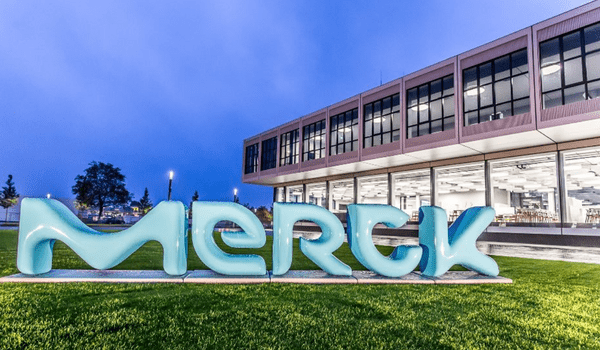An ideal workplace is where every employee, regardless of background, identity, or perspective, feels not only welcomed but truly valued. In a world of diverse backgrounds, cultures and experiences, embracing inclusivity isn’t just an option – it’s a necessity. Understanding this primary aspect of inclusivity, Merck, the Germany-based science and technology company, has taken several steps to make its diversity, equity and inclusion (DE&I) strategies more targeted and streamlined.
In terms of its DE&I approach, the company has gone unconventional. Instead of considering DE&I as a primary HR responsibility, its DE&I programme is overseen and executed by the business. In other words, the champions for DE&I are selected from the business side, to lead these initiatives within their respective business units. Furthermore, the company has established employee resource groups or ERGs, led by a leader who also comes from the business side.
“While we have HR advisors involved, our focus remains on making DE&I a business imperative, managed by the business, with HR providing support to these business functions,” reveals Shiv Kumar, head-HR, Merck, India. The company is running its DE&I initiatives in three of its primary industries — life sciences, healthcare and electronics.
“We’re not compromising on meritocracy, but we’re also actively working on the top of the funnel to ensure that there’s balanced representation of both men and women, offering equal opportunities.”
Shiv Kumar, head-HR, Merck, India
One of the significant aspects of its DE&I approach caters to achieving gender parity in leadership roles. The company has achieved 25 per cent gender parity in India, with one-fourth of the leadership positions held by women including senior executive positions. “Previously, it was much lower, starting at around 14.6 per cent in 2022, but it’s been a positive journey since then,” asserts Kumar.
To achieve the given target, it has relied on one very useful programme that — the ‘Voice Programme’, which aims to address and support women in the workplace. The programme focuses on addressing common challenges faced by the women in the workforce, as impostor syndrome and navigating office politics.
What made the programme more effective was the group coaching sessions organised to address these very challenges. “We realised it made a lot of sense to address these challenges within cohorts, ensuring that coaching was provided across groups. This experience has been fantastic, making our programmes more practical and grounded in reality, rather than being theoretical classroom programmes that may or may not resonate with individuals from a fundamental perspective,” shares Kumar.
The programme witnessed 48 women being divided into groups of five or six for mentoring. These groups remained in contact with each other, and allowed people to exchange insights and create self-help groups within the organisation.
“We aim for meaningful group sizes to foster effective mentorship and development as smaller groups foster more intimate conversations, enabling discussions that are richer and more profound,” points out Kumar.
Furthermore, the company also focuses on hiring from the market for leadership roles. Calling it a continuous practice, Kumar adds, “We’re not compromising on meritocracy, but we’re also actively working on the top of the funnel to ensure that there’s balanced representation of both men and women, offering equal opportunities.”
Additionally, to maintain its talent pipeline, Merck has several internal mentorship programmes, designed to support and develop women leaders within the company. For instance, a woman working in the electrical department may be paired with a mentor from the senior electrical team who provides guidance, shares experiences, and helps the mentee navigate career challenges and opportunities.
It also has customised mentorship programmes in place for each of its business units, including healthcare, life sciences and electricals, to nurture leadership talent at different levels and departments.
Additionally, the company holds annual talent conferences and reviews to examine the current state of their succession planning, which is the process of identifying and preparing future leaders within the organisation. It helps them evaluate the depth of the talent pool, assessing if they have a sufficient number of qualified women ready to take on leadership roles.
Furthermore, the company recognises that educating its existing leadership team about the importance of gender parity is crucial. This education aims to ensure that the leadership understands the business case for diversity and inclusion.
“Education is also vital, particularly for our hiring teams, so they comprehend that while it may be challenging to recruit female candidates for certain roles, it remains imperative because it’s a fundamental business necessity,” enunciates Kumar.
Given that Merck is a science and technology organisation, roles related to STEM (science, technology, engineering and mathematics) have consistently posed challenges in maintaining its gender-parity goals. The most significant challenge was particularly in the healthcare sector, where recruiting women for leadership roles has proven difficult. Despite ongoing efforts, the organisation hasn’t fully achieved gender parity in specific divisions or departments, including its manufacturing and commercial units.
“I am genuinely optimistic about the progress we’re making, as we have achieved gender parity as a whole in our healthcare, R&D and shared business services. In these areas, we have an equal distribution of 50 per cent men and 50 per cent women representation. So, I’m hopeful that in the coming years we will also achieve gender parity in leadership positions within other areas as well,” says a proud Kumar.
To retain this talent and maintain this leadership pipeline, the company actively gathers inputs and insights from its resource groups to make necessary adjustments to its policies. The company’s several mentorship and sponsorship programmes are specifically designed to support career advancement into leadership roles.
“We have an on-going partnership with Institut Européen d’Administration des Affaires (INSEAD), one of the top business schools, for our global-leadership programmes. Additionally, we partner with Indian School of Business (ISB) and select IIMs for specific need-based programmes. These programmes are comprehensive and span various levels, including entry-level employees. We also invest in training to maintain a strong talent pipeline to feed into our future leadership levels,” concludes Kumar.


